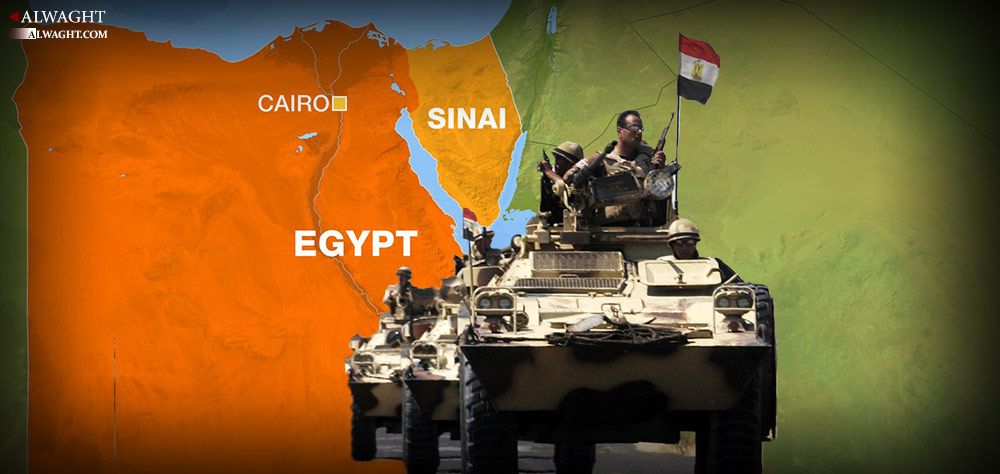Alwaght- The Egyptian army's ongoing operation against ISIS-affiliated militants in restive Sinai Peninsula can amount to “collective punishment,” as up to 420,000 people in North Sinai Province are in urgent need of humanitarian aid, Human Rights Watch (HRW) warned.
"The military campaign against the Islamic State-affiliate in North Sinai has included imposing severe restrictions on the movement of people and goods in almost all of the governorate. Residents say they have experienced sharply diminished supplies of available food, medicine, cooking gas, and other essential commercial goods. The authorities have also banned the sale or use of gasoline for vehicle use in the area and cut telecommunication services for several days at a time. The government has cut water and electricity almost entirely in the most eastern areas of North Sinai, including Rafah and Sheikh Zuwayed," the leading human rights group warned in a statement published on Monday.
HRW called on Egyptian Government to "Provide sufficient food for all residents and allow relief organizations such as the Egyptian Red Crescent to immediately provide resources to address local residents’ critical needs."
The Group's Middle East and North Africa director, Sarah Leah Whitson, said, “A counterterrorism operation that imperils the flow of essential goods to hundreds of thousands of civilians is unlawful and unlikely to stem violence.”
“The Egyptian army’s actions border on collective punishment and reveal the gap between what President Abdel Fattah al-Sisi claims to be doing on behalf of the citizenry and the shameful reality,” she added.
Terrorists have been targeting both government forces and civilians with terror attacks, taking advantage of the turmoil in Egypt that erupted after the country’s first democratically-elected president, Mohamed Morsi, was ousted in a military coup in July 2013.
The Sinai Peninsula has been under a state of emergency since October 2014.
The North African country's military began a new sweeping operation against militants in February after ISIS-affiliated militants launched a bomb attack on a mosque in North Sinai and killed over 300 people, in what marked the deadliest attack in the Arab state's recent history.
The Velayat Sinai group, which has pledged allegiance to the ISIS Takfiri terrorists, has claimed responsibility for the attack.
HRW cited eye witnesses and activists as saying that government's new phase of anti-terror campaign included "Closing roads, isolating cities from each other, and isolating the North Sinai governate from Egypt’s mainland, severely affecting the flow of goods from the mainland."
"The army has become the main source of food, giving some away and selling the rest. But local people said the quantities distributed do not meet existing needs. The crisis is most serious in the eastern cities of Rafah and Sheikh Zuwayed where road closures are stricter, security restrictions have long existed, and private markets have near-completely run out of goods," the statement read.
Officials have denied that there is a food crisis. On March 11, the army spokesperson said that the army continued to “provide food convoys and open several facilities to sell food and goods and other life necessities at discounted prices.” On March 30, Harhor said in a media statement that food “sufficient for six months” was delivered for sale to Sinai markets. But residents and activists said the situation is a humanitarian crisis and that traders should not be allowed to take advantage of the food shortage to increase profits. Human Rights Watch emailed the Egyptian Red Crescent on March 19 and April 15 to inquire whether it was carrying out humanitarian operations in the province but received no response.



























